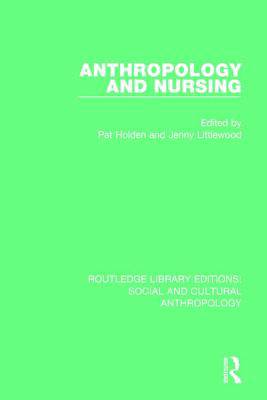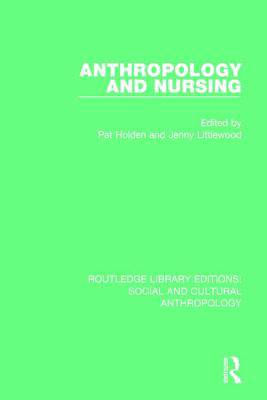
- Afhalen na 1 uur in een winkel met voorraad
- In januari gratis thuislevering in België
- Ruim aanbod met 7 miljoen producten
- Afhalen na 1 uur in een winkel met voorraad
- In januari gratis thuislevering in België
- Ruim aanbod met 7 miljoen producten
Anthropology and Nursing
Omschrijving
Nursing has been described as the most 'natural' female occupation of all, embodying the so-called feminine ideals of tenderness and caring. Yet these ideals are juxtaposed with images of nurses as sex objects, or as ruthlessly efficient harridans. How have these very different images been constructed? And how do they relate to the reality of nursing - the close contact with blood, urine and faeces, and the involvement with the rites of birth, illness and death? This book, first published in 1991, explores the alternative ways different societies have developed to reconcile these contradictions. Using contemporary, historical and cross-cultural case material, the contributors trace the historical development of the role, and investigate the expected qualities of nurses within different cultural settings, such as India, Uganda and Japan. They look closely at 'the nurse' as a social construct, and demonstrate how the stereotypes relate to a particular society's notions of gender. Designed primarily for anthropologists and sociologists interested in health, illness and systems of health care, this book challenges some of the myths of traditional nursing studies and provides an original perspective on doctor/nurse/patient relationships.
Specificaties
Betrokkenen
- Uitgeverij:
Inhoud
- Aantal bladzijden:
- 240
- Taal:
- Engels
- Reeks:
Eigenschappen
- Productcode (EAN):
- 9781138928244
- Verschijningsdatum:
- 21/07/2015
- Uitvoering:
- Hardcover
- Formaat:
- Genaaid
- Afmetingen:
- 156 mm x 234 mm
- Gewicht:
- 517 g

Alleen bij Standaard Boekhandel
Beoordelingen
We publiceren alleen reviews die voldoen aan de voorwaarden voor reviews. Bekijk onze voorwaarden voor reviews.








